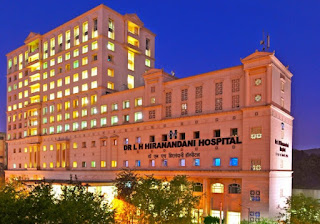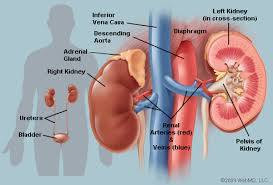The Reality told by Dr. L H Hiranandani Hospital on Chronic Kidney Disease
Chronic kidney disease is a term used by doctors to indicate that our kidneys are damaged. It is a condition that describes the gradual loss of kidney functions. In India, more than 10 lakh people suffer from this disease per year. There are several treatments that can help manage this condition but there is still no cure.
Generally, people don’t know that they have chronic kidney failure until their kidney function drops to 25% of normal functioning. This is harmful for the body. Chronic kidney disease can lead to end-stage kidney failure, which can be dangerous if proper dialysis or kidney transplant is not done.
The treatment of chronic kidney disease focuses on slowing the progression of kidney damage. Proper counseling and sessions are provided by the hospital to educate patients regarding the pros and cons of treatment. Hiranandani Powai Hospital has a good kidney disease treatment centre.
The measurement of amount of blood your kidneys can filter in a minute is calculated by GFR. Glomerular Filtration Rate (GFR) changes help in identifying the rate of kidney failure. These changes are divided into five stages.
Stage 1: In this initial stage, GFR is within acceptable limits. However, evidence of kidney disease is detected in this stage.
Stage 2: GFR is less than 90 millilitres, and there is evidence of kidney disease. In this stage, a mild decrease in kidney function is ensured.
Stage 3: In this stage, GFR rate is less than 60 millilitres which tells a mild to moderate decrease in kidney function.
Stage 4: this stage signifies the acute reduction in kidney function in which GFR rate is less than 30 millilitres.
Stage 5: This stage is the last stage and is called ESRD (End-Stage Renal Disorder) where the GFR rate is less than 15 millilitres implying kidney failure.
Looking at all these stages, kidney failure should be diagnosed and treated in the initial stages to avoid any serious consequences. To detect diabetic nephropathy in early stages microalbuminuria test of urine should be done once a year.
At Hiranandani Hospital, Kidney treatment is done under the supervision of highly professional experts of nephrology. It is the best treatment that ensures long-term survival and lower risks of fatality. To prevent kidney rejection, doctors prescribe some immunosuppressant.
These drugs should be taken regularly as prescribed by the doctor, as if these medications are skipped even for a short time, the patients’ body can reject the new kidney.
Here are some stats by Dr. Sujit Chatterjee, CEO of Hiranandani Hospital.
- Common symptoms of Chronic Kidney Disease are blood in the urine, high blood pressure, and fatigue.
- Diabetes can lead to chronic kidney failure.
- Heart disease becomes more prevalent those who are suffering from CKD.
- GFR is best for accurate estimation of kidney functionality.
- Blood tests, kidney scans, biopsy should be done to make the diagnosis of kidney failure.



Comments
Post a Comment